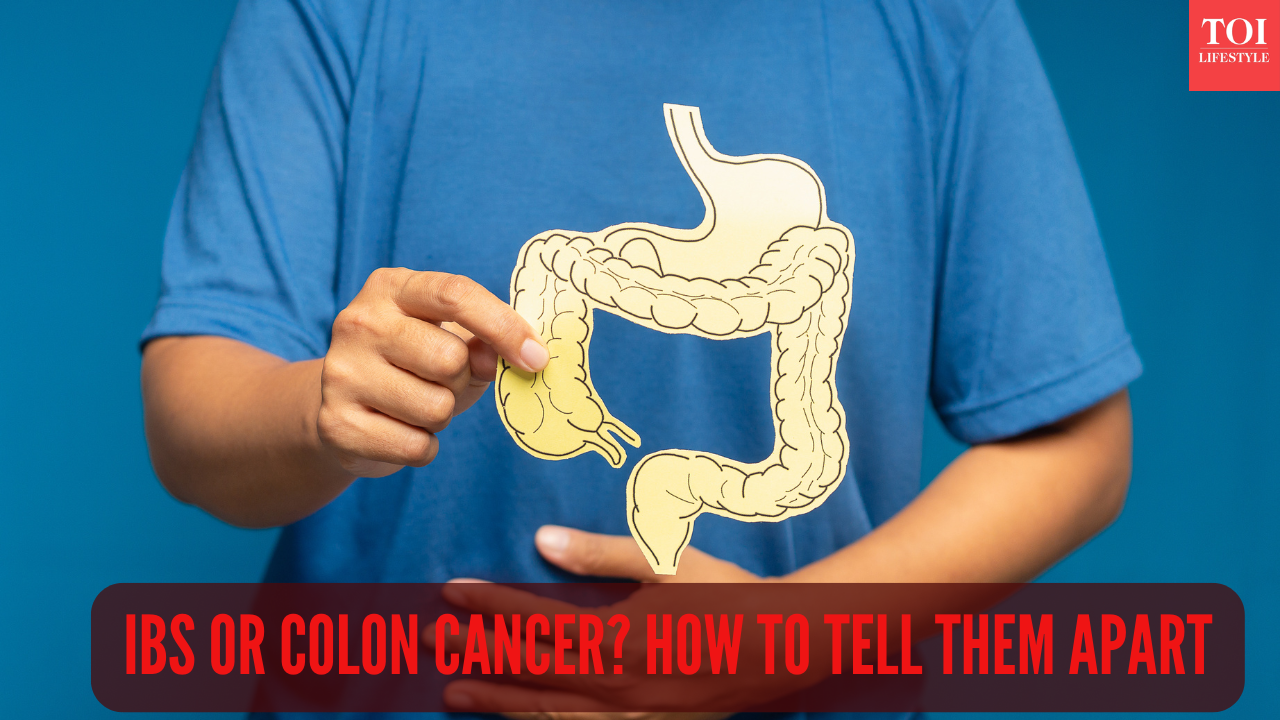Entertainment
Distinguishing Between IBS and Colon Cancer: Key Differences

Many individuals experiencing gastrointestinal issues may find themselves confused by overlapping symptoms of Irritable Bowel Syndrome (IBS) and early colon cancer. Both conditions can cause abdominal pain, altered bowel habits, bloating, and a sense of incomplete evacuation. This similarity can lead to delays in diagnosis, as symptoms of early colon cancer are often vague and easily dismissed.
A large-scale meta-analysis published in March 2024 in the journal Frontiers revealed that individuals newly diagnosed with IBS face a significantly increased risk of developing colorectal cancer. The study found that during the first year after an IBS diagnosis, the likelihood of a colorectal cancer diagnosis was nearly six times higher than in individuals without IBS. After this initial period, the risk returned to levels comparable to the general population. This suggests that while IBS does not cause colon cancer, early stages of colon cancer can be misidentified as IBS due to symptom overlap.
Understanding the Symptoms
The symptoms of colon cancer tend to worsen over time, in contrast to those of IBS, which often fluctuate. In IBS, symptoms may improve after bowel movements or through dietary adjustments. Common IBS symptoms include cramping, bloating, and occasional diarrhea or constipation. In comparison, colon cancer presents with more alarming signs, such as rectal bleeding, unexplained weight loss, fatigue, and narrowing of stools.
Individuals with IBS typically experience cramp-like abdominal pain that is relieved by passing gas or stool. Conversely, pain related to colon cancer is usually persistent, localized, and not alleviated by bowel movements. Additionally, IBS symptoms often have identifiable triggers, such as specific foods or stress, whereas colon cancer symptoms do not.
Recognizing Warning Signs
It is essential to recognize key warning signs that necessitate further investigation. Symptoms such as blood in the stool—either bright red or dark and tarry—require immediate medical attention. Other critical indicators include unexplained weight loss, fatigue, and systemic issues like anemia due to chronic bleeding.
Diagnostic testing, particularly a colonoscopy, is recommended for individuals experiencing persistent or worsening symptoms. Colonoscopy is the gold standard for visualizing the colon’s interior and allows for biopsy of any suspicious lesions.
In summary, while the symptoms of early colon cancer can mimic those of IBS due to the involvement of the same organ, distinct differences emerge as the diseases progress. Awareness of these differences is crucial for timely diagnosis and treatment of colon cancer. Individuals experiencing prolonged gastrointestinal symptoms, especially those accompanied by alarming signs, should seek medical evaluation promptly. Understanding the nuances between these two conditions can lead to better health outcomes and peace of mind.
-

 World4 months ago
World4 months agoSBI Announces QIP Floor Price at ₹811.05 Per Share
-

 Lifestyle4 months ago
Lifestyle4 months agoCept Unveils ₹3.1 Crore Urban Mobility Plan for Sustainable Growth
-

 Science3 months ago
Science3 months agoNew Blood Group Discovered in South Indian Woman at Rotary Centre
-

 World4 months ago
World4 months agoTorrential Rains Cause Flash Flooding in New York and New Jersey
-

 Sports3 months ago
Sports3 months agoBroad Advocates for Bowling Change Ahead of Final Test Against India
-

 Top Stories4 months ago
Top Stories4 months agoKonkani Cultural Organisation to Host Pearl Jubilee in Abu Dhabi
-

 Science4 months ago
Science4 months agoNothing Headphone 1 Review: A Bold Contender in Audio Design
-

 Top Stories4 months ago
Top Stories4 months agoAir India Crash Investigation Highlights Boeing Fuel Switch Concerns
-

 Sports3 months ago
Sports3 months agoCristian Totti Retires at 19: Pressure of Fame Takes Toll
-

 Business4 months ago
Business4 months agoIndian Stock Market Rebounds: Sensex and Nifty Rise After Four-Day Decline
-

 Politics4 months ago
Politics4 months agoAbandoned Doberman Finds New Home After Journey to Prague
-

 Top Stories4 months ago
Top Stories4 months agoPatna Bank Manager Abhishek Varun Found Dead in Well









